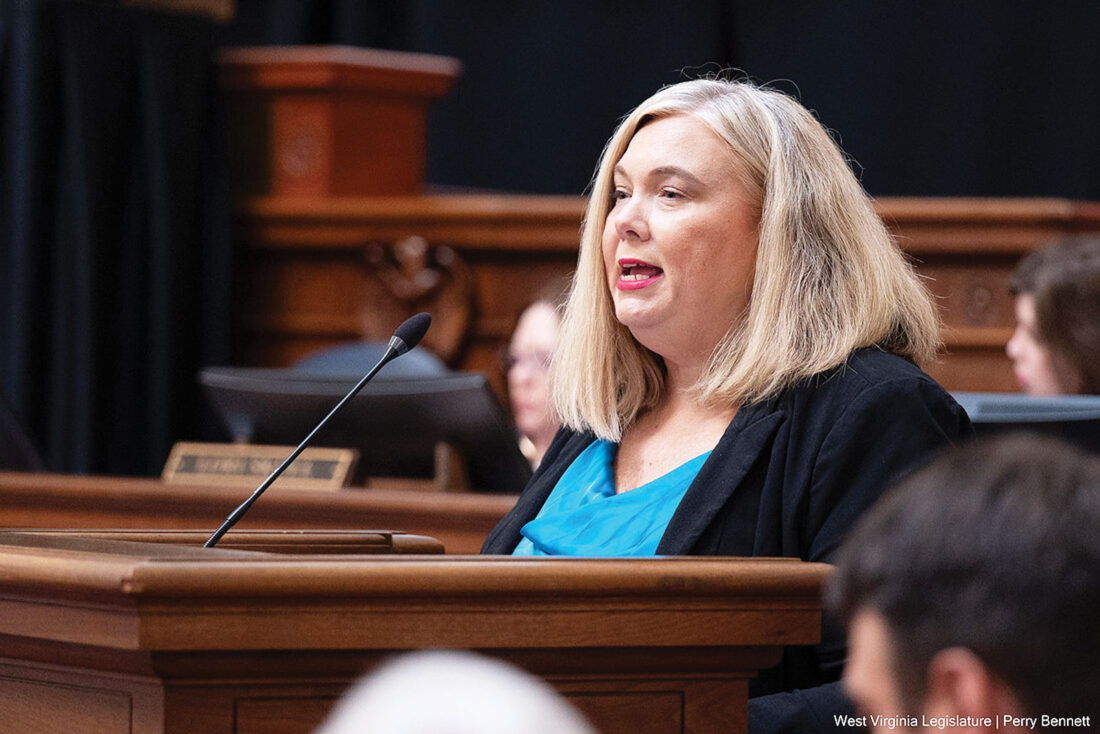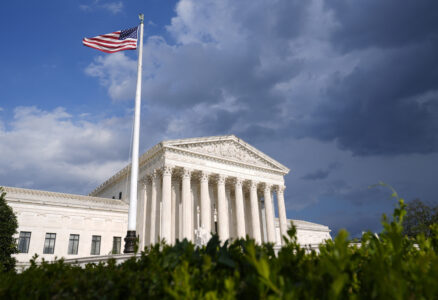West Virginia lawmakers briefed on Medicaid changes from Big Beautiful Bill

Bureau for Medical Services Commissioner Cynthia Beane gives lawmakers an update Monday on changes to Medicaid required by the One Big Beautiful Bill Act. (Photo courtesy of WV Legislative Photography)
CHARLESTON — As members of the West Virginia Legislature consider impacts to the next general revenue budget from President Donald Trump’s One Big Beautiful Bill, a state official laid out how that bill will affect Medicaid programs. Cynthia Beane, commissioner of the Bureau for Medical Services within the state Department of Human Services (DoHS), gave a presentation Monday morning to the Joint Standing Committee on Finance during the second day of October legislative interim meetings at the State Capitol Building. Passed earlier this summer, the One Big Beautiful Bill Act – also called the Working Families Tax Cut Bill – made significant changes to Medicaid, the federal and state health insurance program for low-income individuals and families. One change, called “community engagement,” requires individuals who receive Medicaid to actively be working at least 80 hours per month, or be enrolled in school or volunteer beginning in 2027. Those required to work will need to check in with the state once per month to remain eligible. Medicaid recipients in states that expanded their programs through the Affordable Care Act will also need to renew their coverage every six months. According to Beane, there are just under 504,000 people in West Virginia’s Medicaid program, with 160,000 participants due to Medicaid expansion. While 60% of this group already has earned income, Beane estimated that between 20,000 to 40,000 individuals not currently in the workforce may need to secure employment or engage in other qualifying activities to maintain their Medicaid eligibility. This is expected to cause a decrease in overall enrollment. “I do anticipate that we will see some of our enrollment go down for community engagement,” Beane said. “I don’t know that everyone will be able to comply or will comply with that. I do anticipate some people coming off those rolls. I don’t have an exact number on that yet. We’re still doing some evaluations of the population.” The Affordable Care Act, supported by former President Barack Obama and passed by Congress in 2010, allowed states to expand their Medicaid programs to adults under age 65 with income up to 138% of the federal poverty level, or $21,597 annual income. Former governor Earl Ray Tomblin announced in 2013 that West Virginia would participate in the Medicaid expansion program, which went into effect in 2014. According to the Kaiser Family Foundation, 40 states and Washington, D.C., are in the Medicaid expansion program, with 10 states not participating. Under the program, the federal government provides a 90% match (FMAP), with the state covering the remaining 10%. The One Big Beautiful Bill also implements a new rule for the Payment Error Rate Measurement (PERM) program, establishing a strict 3% error rate threshold. Beginning in 2029, the federal Centers for Medicare and Medicaid Services (CMS) will no longer have the authority to waive financial penalties for states exceeding this rate. West Virginia’s PERM percentage was once as high as 15%, though the state’s last reported rate was 3.43%. According to Beane, this provision presents a potential financial risk to the state if the rate is not lowered and maintained. “If we have a high PERM error rate, that could cost the state of West Virginia potentially millions of dollars,” Beane said. “I did want to make sure that everybody understood that particular passage, because I don’t think that gets talked about a whole lot, but that could really affect Medicaid programs in the future.” Beane said that major changes to provider tax regulations within the One Big Beautiful Bill will significantly impact the state’s Directed Payment Program for hospitals. Starting in 2028, revenue reductions will begin at $35.6 million and escalate annually to $178 million by 2032. Bean said this represents a substantial decrease in funds that are federally matched and directed to West Virginia hospitals. “That is the biggest hit with regards to our provider tax implications,” Beane said. West Virginia is in the process of preparing its application for the new federal Rural Health Transformation program, another program created by the One Big Beautiful Bill. The Rural Health Transformation program will provide $10 billion a year to states each federal fiscal year from 2026, which begins Oct. 1, through 2030. Half of the available funding would be distributed evenly to all 50 states, if they apply for it. The other half would be distributed based on health care metrics. The state could receive at least $100 million per year if West Virginia’s application is accepted. The state’s Managed Care Organization (MCO) tax must also be converted from its current tiered system to a uniform rate. While designed to maintain the same level of overall revenue, this change will increase the tax liability for at least one MCO in the state. “We will be running legislation in January around our MCO tax to make it uniform,” Beane said. “The bill that we would want to propose would not decrease our taxes…It’s not that we’re going to get less money for our MCO tax. We would want to keep the money the same coming in for our MCO tax. “It will affect one of the MCOs that has a private book of business,” Beane continued. “They will have to pay more tax because the tiers really help if you have a private book of business. The rest of our MCOs in West Virginia do not have a private book of business or are structured in a way that that does not count. So, one of the MCOs will be paying more taxes when it’s not tiered.” Other things changing due to the One Big Beautiful Bill: * The window for Medicaid to cover medical bills incurred prior to a successful application has been shortened from three months to one month. * Federal support for family planning providers will be eliminated. The single provider of these services in West Virginia has been notified. * The Federal Medical Assistance Percentage (FMAP) for emergency services provided to illegal immigrants will be reduced from the 90% expansion rate to West Virginia’s regular FMAP, which is approximately 75%. This is expected to be a minor financial change due to the small population utilizing this benefit. * A provider tax on labs and x-rays tax must be lowered from 5% to 3.5%. Steven Allen Adams can be reached at sadams@newsandsentinel.com.





